
Few things are more irritating than not getting the right answer when you need it. Today’s world of instant gratification has raised a population of impatient customers not willing to go an extra mile looking to fill their knowledge gaps – rather, they expect an answer within seconds. Whatever the industry of your business might be, you want to keep your customers happy and satisfied. To do this, you need to provide excellent customer care, which involves having a help desk or call center. The impression your customer gets from a contact with your call center is so important that Richard Branson, the chair of Virgin Group, sometimes pretends to be a customer and masks his voice to reach Virgin’s call center and check how effectively it works. So a logical question is: how do you improve your call center service and create a positive image that sticks? The answer may be in establishing a knowledge base for your support team.
First, what is a knowledge base? It is a platform that hosts a library of information about your business, its processes, flows, documentation and products or services. This internal resource is a valuable tool for knowledge sharing among existing employees and for onboarding newcomers. For a call center, a knowledge base adds more value: a base of customer inquiries and exhaustive answers, tutorials, guides and manuals — all aimed at helping the support desk staff resolve customer queries quickly and efficiently. Designed as a software tool with easy search and navigation, a customer service knowledge base provides your support staff with accurate and up-to-date information and your customers with the care and superb service they expect.
How to Build a Call Center Knowledge Base
Prepare the product or service documentation base you already have
Even when it looks like you need to start creating your knowledge base from scratch, it is rarely so. Big or small, your product / service range is already described, so collect that documentation and organize it logically into a comprehensive base which your call center staff can easily use.
Analyze the most common customer queries
Identify your customers’ most frequent questions and create a knowledge base of the most common ones. Note which products or services attract more questions and try to understand why. Is there enough knowledge to address these questions? Try to single out the most popular cases and scenarios. Then you can add less common and more unique ones.
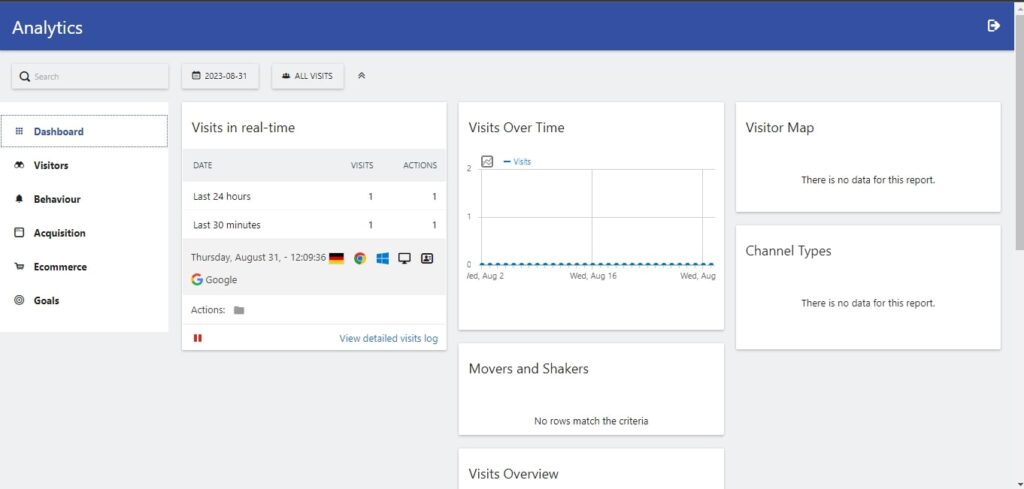
Categorize the questions
Once you have a base of popular questions, look for a logical way to organize them. What big categories of knowledge do they fall into? Think of easy tags, key words and headers to facilitate search.
Have the answers compiled and curated by experts
Make sure that the questions that worry your customers are answered by knowledgeable experts. These questions belong in your future knowledge base. Do not rely on your call center staff to find words and offer explanations – turn to those who really have the knowledge about how things work.
Make the content plain and simple
What is easy for an expert may not necessarily be readily understood by a customer or even a call center operator. Just as a content writer may not be a technical expert, a vetted professional may not have the skill to articulate simple answers. An abundance of complicated terminology, passive and impersonal constructions and complex sentences do not empower your base to share knowledge easily. Team up your experts with content creators to prepare such knowledge base content that provides clear, unambiguous, well-illustrated answers and is accompanied with images and/or videos. Once the base content is ready, check it with your call center staff because they are the ones who will have to use it. Does it cover all their needs? Are the compiled answers enough to resolve customer issues?
Provide easy search and navigation
Take advantage of cutting-edge technologies to implement autocomplete recommendations, pop-up tips and suggestions. What is the use of a knowledge base if it takes hours to find an answer? Artificial Intelligence and Machine Learning can make the needed knowledge available in the base quickly.
Optimize the rights and security and consider self-service
If you intend your knowledge base to be used not only by your call center staff but also by customers directly, you need to think about different rights of access. Think about how information may be accidentally or deliberately altered and protect your knowledge base.
Allow for updates
A knowledge base cannot be drawn up once and for all. It needs to be updated and curated, when elements that become obsolete are replaced with up-to-date bits of knowledge. The content must be continuously managed along with the changes your business is living through.
The Use of a Knowledge Base in Call Centers
Train your call center staff to use your knowledge base
It’s better to allow a little time for training first than to discover later that the efforts you invested in creating the knowledge base went wasted if the call center operators are not using its potential to the maximum.
Welcome feedback and input from call center staff
Encourage your call center operators to continuously perfect your knowledge base. Having a commenting option in your knowledge base software will be a huge benefit. The staff’s efforts to enhance the system, once heard, will not only improve their performance but also make them feel valued – which, as Forbes and Glassdoor state, helps employee motivation and job satisfaction.
Encourage your customers to use the knowledge base as a self-service resource
Only about 40% of customers will call your support center, while the other 60% would rather look for a self-service option. If you don’t want to lose those 60%, you should provide them with this option. Once compiled, your knowledge base can become a valuable resource to keep in touch with your customers and offer a solution to many of their problems. Make sure to direct your customers towards your knowledge base – send them an email with the link and instruct the call center staff to make the customers aware of where and how they may find answers to their questions. Don’t forget to ensure that the FAQ section of your knowledge base is easy to navigate for users who may be less proficient than your call center operators. The latter should also be able not only to direct callers to the knowledge base but also walk them through and show all the steps to troubleshoot their issue.
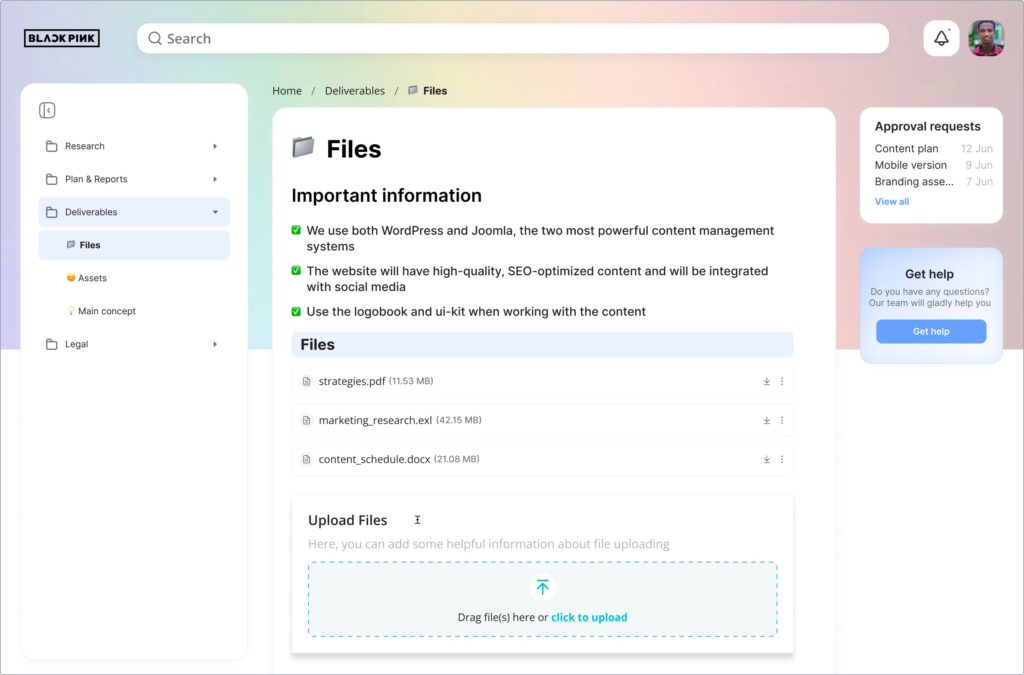
Benefits of Using a Call Center Knowledge Base
Reducing call times and cutting costs
Once your call center operators have a complete and well-running knowledge base at hand, they can find relevant information in no time. This increases the call center efficiency and brings down the costs, as fewer operators can offer support to more customers.
Increasing customer satisfaction
A comprehensive and intuitively clear knowledge base enables operators to find and offer solutions to customer challenges faster, without putting them on a waiting line for long irritating minutes. This promotes your image as a caring and well-organized business. In turn, happy customers, whose problems are resolved promptly and efficiently, spread word-of-mouth and bring your business more profit.
Ensuring consistency and standardizing responses
Have you ever heard the dissatisfied ‘But he said….?’ Since people call with the same questions time and time again, it is essential that all of them get standard answers that prevent ambiguity and confusion. The information your customers receive should be consistent at all levels, through all channels. Your call center staff should have no room for interpretation and relaying critical information in their own way. Once your knowledge base is in place, vetted by experts and studied by the call center operators, your customers will get consistent answers, avoid misunderstandings and appreciate your well-coordinated support.
Revealing and filling knowledge gaps
A knowledge base is only efficient if it can provide the necessary answers. This base should be regularly audited, where obsolete information is deleted or updated, and new bits of knowledge are introduced. If certain questions are repeatedly asked by callers and cannot be answered by the call center staff, it is a signal to turn to experts to update the knowledge base and draw the staff’s attention to these updates.
Improving call center employees’ satisfaction
Most workers are genuinely happy when they are able to do their job well. Once they know they are contributing to the company’s success, they are motivated to keep working and further developing their skills, thus bringing even more value. A knowledge base is a great tool to help your call center staff to provide better support and increase the level of happiness associated with your company, both for customers and employees.
Saving training and onboarding time
With an extensive and well-organized knowledge base, it becomes much easier to train and onboard new staff. Richard Branson emphasizes: ‘Your support staffmembers are among your most valuable assets, so you shouldn’t hesitate to invest in them’. However, any business is looking to reduce costs, so a knowledge base allows just that – you can promote professional growth of your call center staff without spending extra time and money on mentoring each newcomer. Providing new call center employees with access to your knowledge base, you ensure they have everything they need for training and can do it whenever and wherever suits them best.
5 Best Software Tools for Creating a Call Center Knowledge Base
1. FuseBase
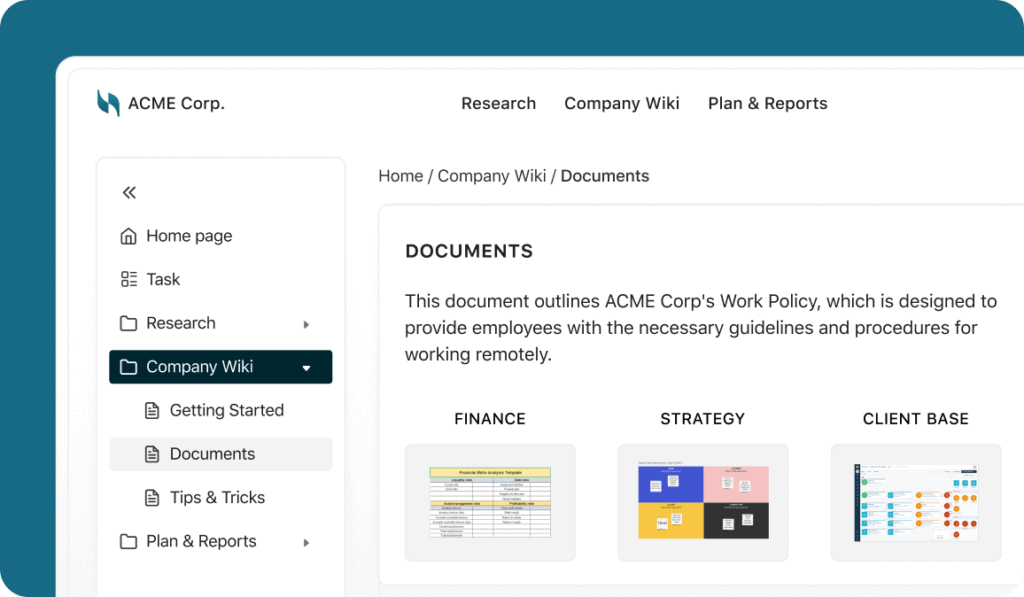
FuseBase knowledge base software provides endless opportunities for creating and organizing your content. You can create smart documents with multiple objects; grab information from the web with an easy clipper tool; create, share and comment videos; edit your knowledge base in real time; separate authoring and access rights for various contributors; create screenshots with annotations for easy explanations; chat with your colleagues while staying within the knowledge base and a lot more.
Build up your perfect knowledge base with FuseBase
2. HubSpot Service Hub
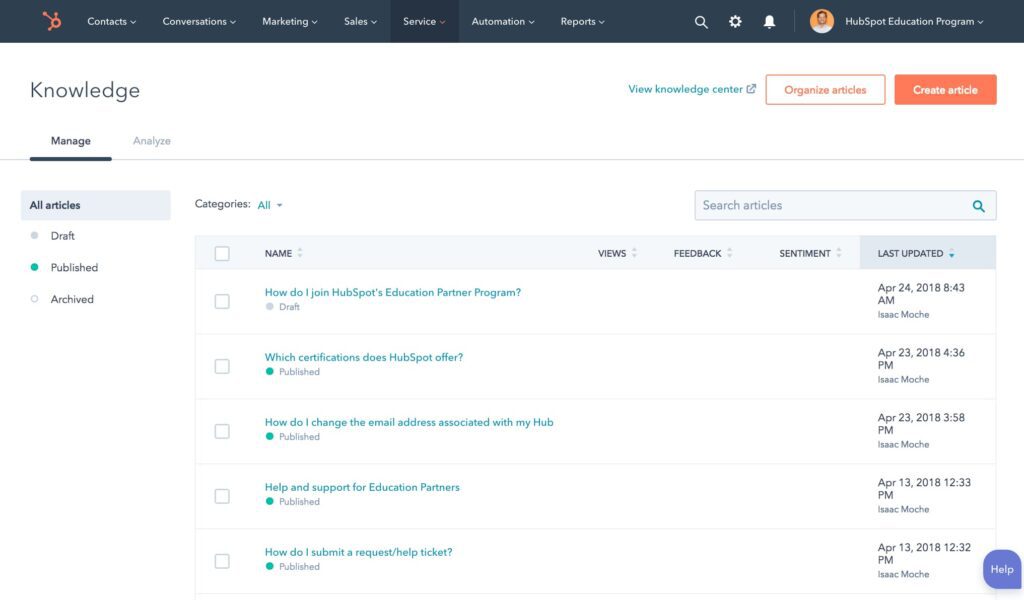
This software is a knowledgebase that emphasizes self-service, allowing users to build a library of help articles indexed in search engines. It offers a built-in reporting dashboard, logs customer issues as tickets, helps gather feedback through easily-deployed surveys and features personalized customer service conversations in real time. As a downside, it may be a bit too costly for a small newly established business.
3. ZenDesk
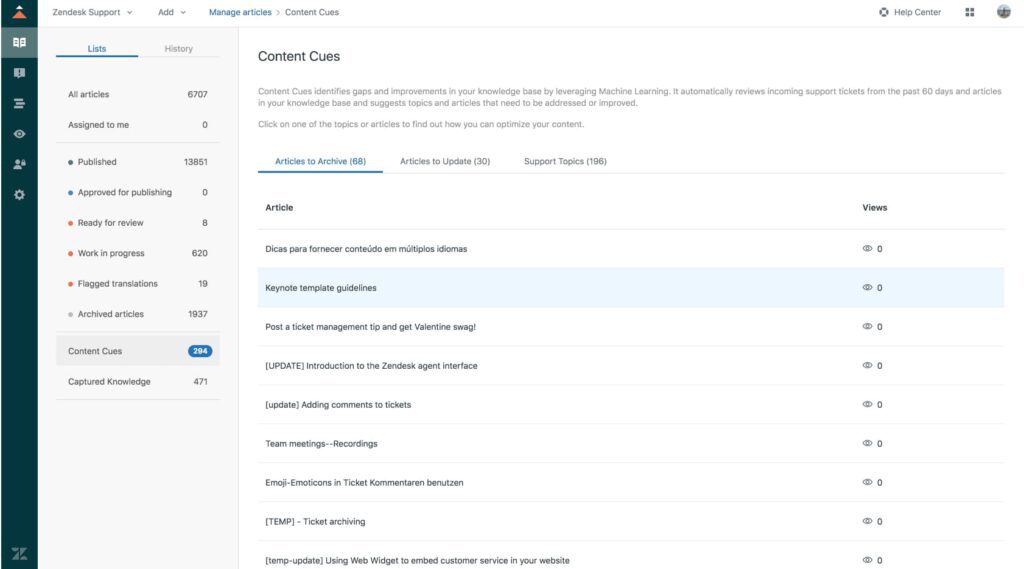
This tool focuses on self-service too, offering a smart knowledge base to empower customers who ‘prefer to help themselves’. ZenDesk’s highly-customizable software gives you complete freedom over the organization and appearance of your branded help center, which can be localized for over 40 countries.
4. KnowledgeOwl
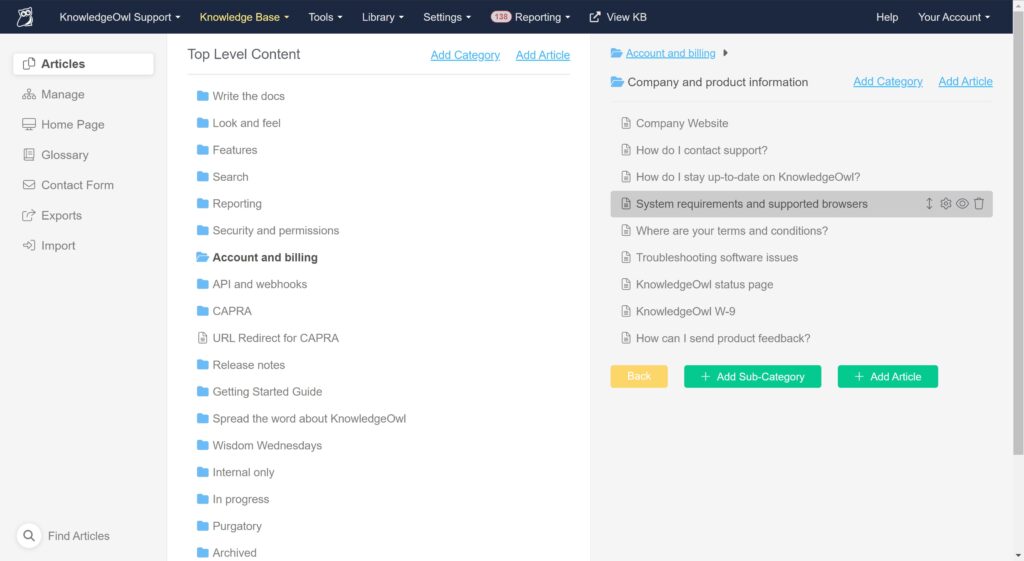
The developers of this software claim to offer the best support through continuous analysis of customer requests and feedback, willing to add whatever feature you are looking for. Among the existing features of this knowledge base are: easy sharing of educational materials, videos and job briefs; easy-to-create and easy-to-manage technical documentation; a robust search with autosuggest; a built-in contextual help widget and extensive custom branding options.
5. LiveAgent
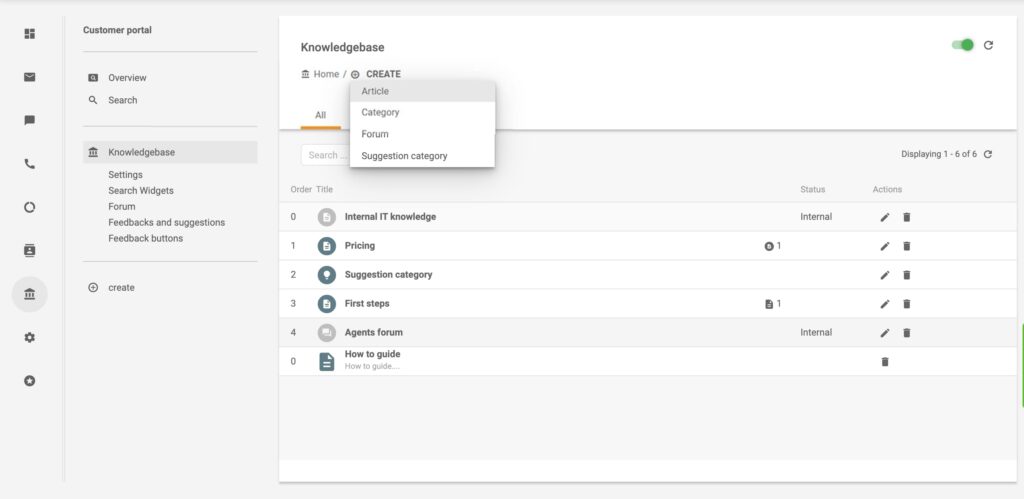
This software has almost endless personalization features, customizing every element of your knowledge base you can think of. You can even support multiple brands, each with its own unique theme. Besides, it has clear defined access rights to cater separately for your call center employees and customers.
Conclusion
Setting up and running a call center may seem tough. You have to train your employees, prevent staff turnover and deal with complicated customer questions while maintaining the call center efficiency and customer satisfaction. Luckily, you do not have to reinvent the wheel – today, there are enough software tools for creating a knowledge base that will solve all these challenges and keep both your staff and your customers happy. Define the needs your call center knowledge base has to meet, considering all the features above: easy commenting and timely updates, separate access rights and AI-powered search, built-in chats and survey options, and then choose a provider that offers the most suitable software. Do so with the intent to scale up your business and go for highly flexible and customizable solutions, such as the FuseBase knowledge base tools.
Visit the FuseBase LinkedIn page for the latest news and updates!
Disclaimer
Parties other than FuseBase may provide products, services, recommendations, or views on FuseBase site (“Third Party Materials”). FuseBase is not responsible for examining or evaluating such Third Party Materials, and does not provide any warranties relating to the Third Party Materials. Links to such Third Party Materials are for your convenience and do not constitute an endorsement of such Third Party Materials.
Found it useful? Share the article with your community
Subscribe to our blog!
Get weekly tips and insights on how to grow your business